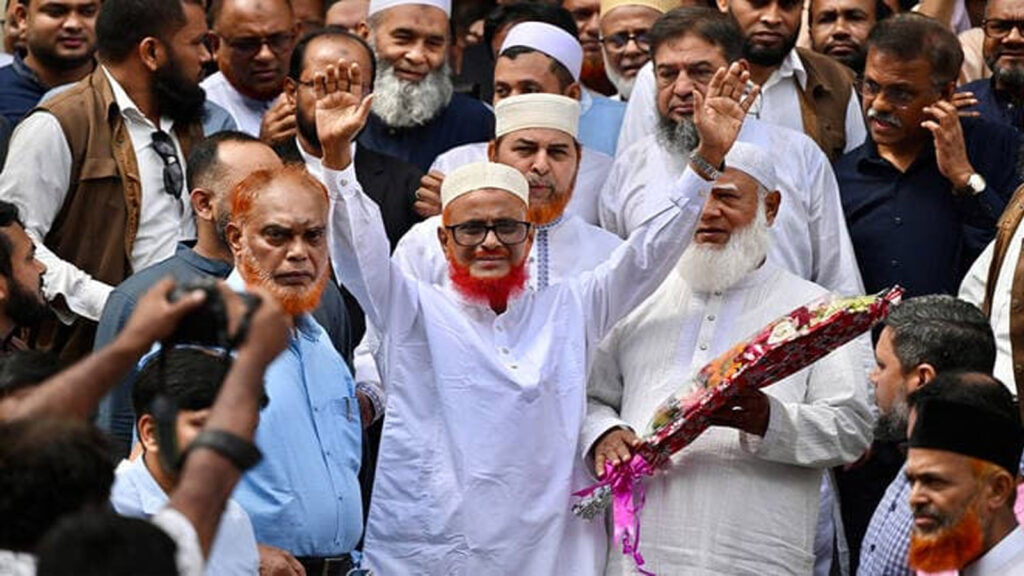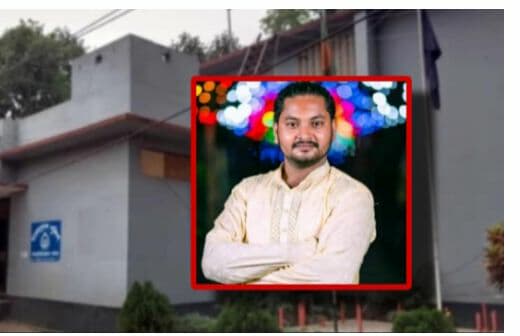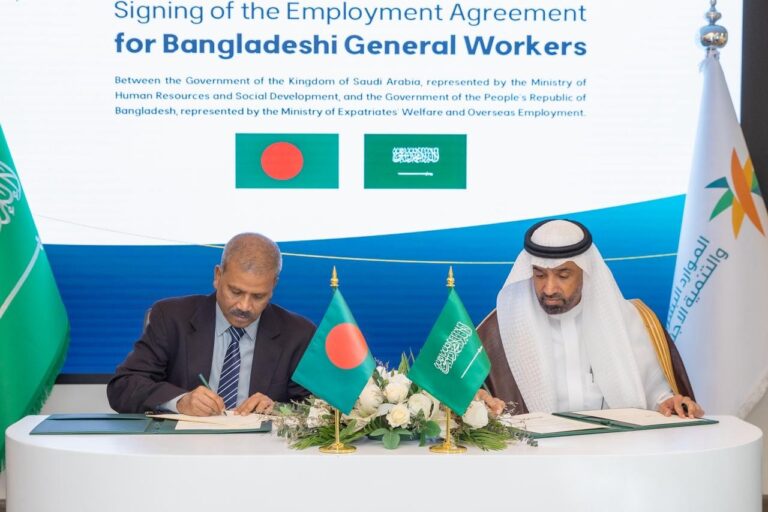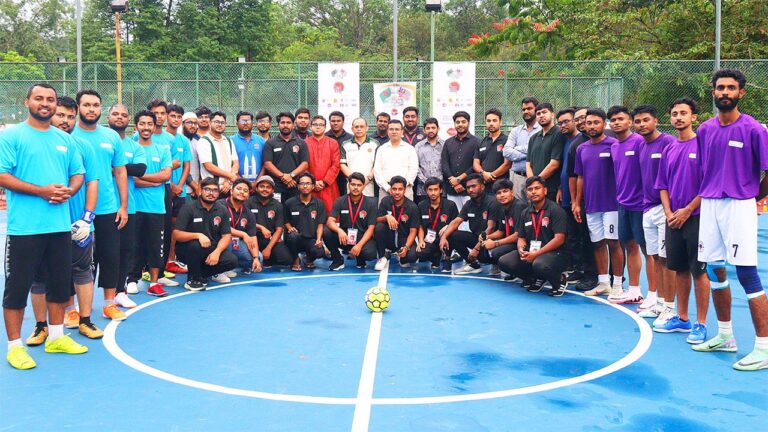
After Sheikh Hasina was ousted as prime minister in August, the party appealed for a review of the 2013 high court order banning it
Bangladesh’s Jamaat-e-Islami Ameer Shafiqur Rahman (3R) presents a floral wreath to leader A.T.M. Azharul Islam (4L) after he was released from prison in Dhaka on May 28, 2025.
“More than a decade after its removal by the now-overthrown government, Bangladesh’s largest Islamist party, Jamaat-e-Islami, had its registration restored by the Supreme Court on Sunday. This ruling overturns the previous cancellation, officially allowing the party to be recognized by the Election Commission and participate in elections.”
On Sunday, Bangladesh’s Supreme Court restored the registration of Jamaat-e-Islami, the country’s largest Islamist party. This ruling reverses the previous cancellation of its registration, enabling its formal listing with the Election Commission and clearing it to contest elections after being barred for over a decade by the now-deposed government.
“The Election Commission is directed to deal with the registration of that party in accordance with law,” commission lawyer Towhidul Islam told AFP.
Jamaat-e-Islami Aims for Parliamentary Presence After Leader’s Acquittal
Jamaat-e-Islami is calling on all Bangladeshis, regardless of their ethnic or religious background, to vote for the party, hoping to foster “vibrant, constructive debates” in parliament, as stated by Monir to journalists.
This appeal follows the August ousting of Prime Minister Sheikh Hasina and the party’s subsequent request for a review of the 2013 high court order that banned it.
The party’s renewed push comes after the Supreme Court on May 27 overturned the conviction of A.T.M. Azharul Islam, a prominent Jamaat-e-Islami leader. Islam had been sentenced to death in 2014 for his involvement in rape, murder, and genocide during Bangladesh’s 1971 war of independence from Pakistan.
The enduring anger among many Bangladeshis stems from Jamaat-e-Islami’s backing of Islamabad during the war. This party was a direct political opponent of Sheikh Mujibur Rahman, the father of Hasina and Bangladesh’s revered founding figure. Hasina, in her leadership, outlawed Jamaat-e-Islami and initiated a severe crackdown on its prominent members. More recently, in May, Bangladesh’s interim government has banned the Awami League, pending a trial related to its suppression of widespread protests that ultimately resulted in Hasina’s ouster last year.





